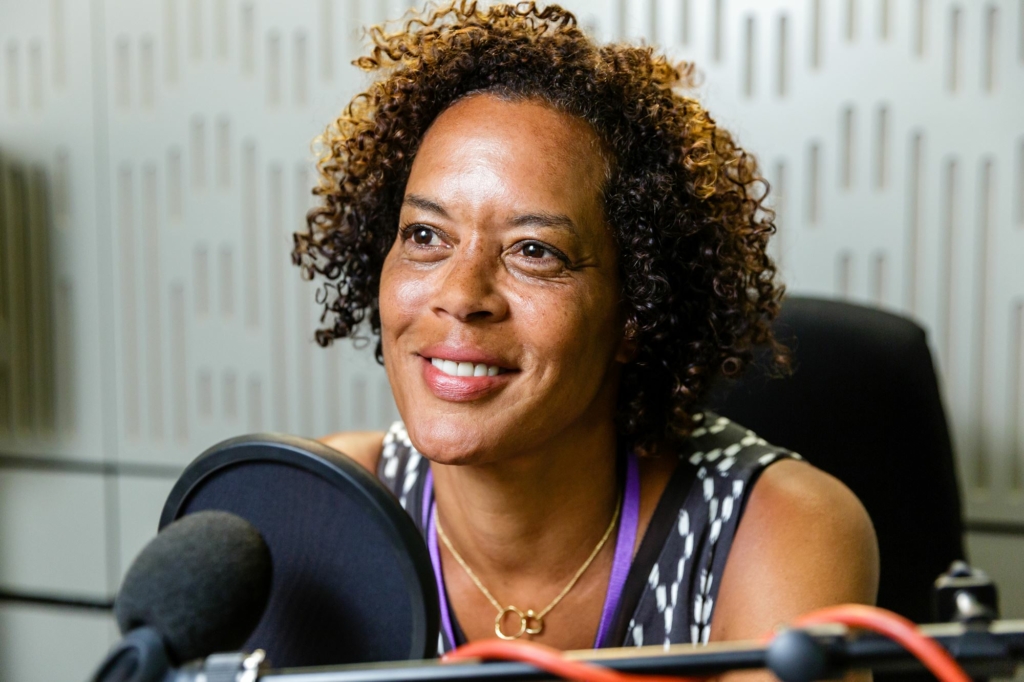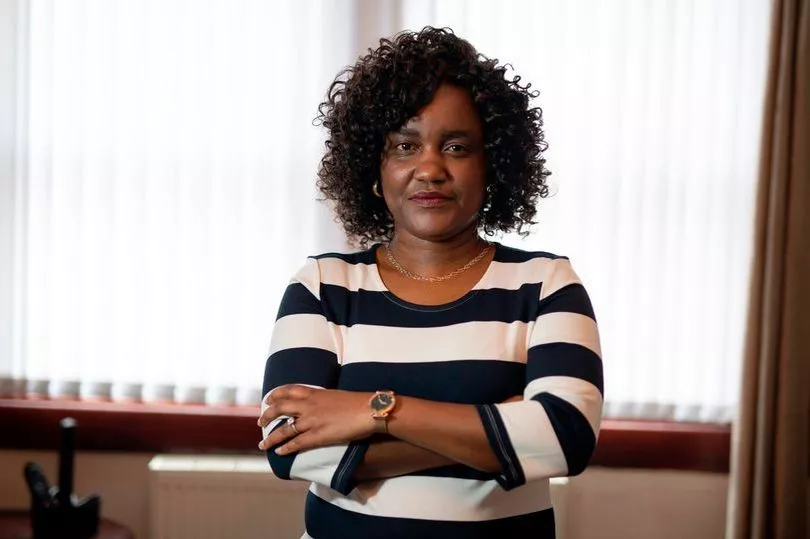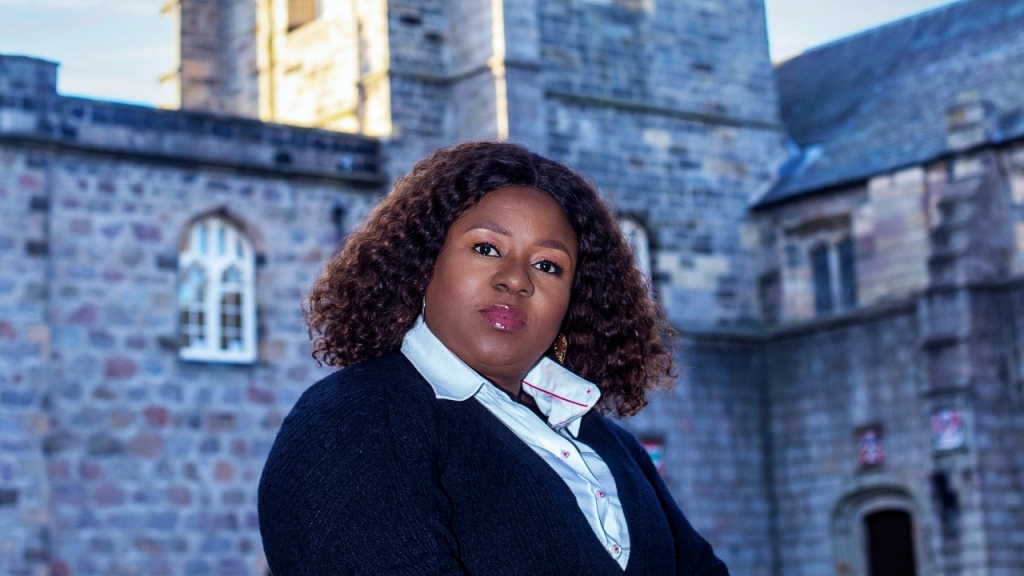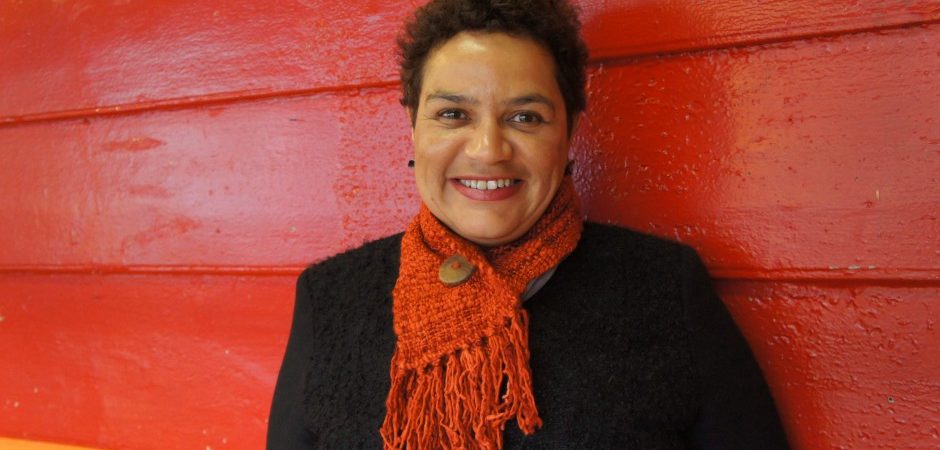Black History Month: Celebrating and Saluting our Scottish Sisters
” … remember that Black history is our collective history and that we are writing the story of tomorrow today with every choice we make. This Black History Month; let’s stand with our sisters and choose a fair and just Scotland without racism” argues Khutso Dunbar.
Black History Month is in full swing with programming and events across the country aimed at bringing attention to the often ignored and sometimes silenced voices of the Black and ethnic minority community. As Scottish society becomes increasingly diverse, this month becomes more meaningful as a time to reflect on how history has impacted the present. While we lament and learn from the past ills of slavery, colonialism and the ongoing racism that plagues our society- we must also respond and recognise the opportunities for a better future.

Aminatta Forna
This month’s theme is: ‘Celebrating and saluting our sisters’- an opportunity to shed light on the contributions of Women of Colour. In Scotland, we have much to salute and celebrate. We start by paying homage to a lesser-known suffragist Jessie Margaret Soga, born in 1870 to a Black South African father of Xhosa heritage and a White Scottish mother. Soga was one of the key members of the Women’s Freedom League branch in Hillhead, Glasgow and known as Scotland’s only Black/mixed race suffrage campaigner. She was also a singer and music teacher performing as a soloist with the Kelvingrove United Presbyterian Choir at the Coatbridge Corporation Recitals. Soga used her music career to help fund the efforts of the Women’s Social and Political Union, a Women’s rights political group to which she belonged. Women received the right to vote in 1918 and Soga’s activism and contributions in Scotland were noted as significant.
Other figures of note include Aminatta Forna, OBE, a multi-award-winning author born in Bellshill, Scotland to a Scottish Mother and a Sierra Leonian physician father (pictured above). Along with her writing, Forna has also worked as a reporter, produced various documentaries for the BBC and is a founder of a charity to build schools in her father’s home of Sierra Leon. Jacqueline Margaret Kay, CBE, FRSE, FRSL is another celebrated author of Black heritage who was born in Edinburgh to a Nigerian father and Scottish mother and grew up in Bishopbriggs. Jackie Kay as she is widely known; is a poet, playwright and novelist who was Scotland’s Makar (national poet laureate) from 2016 to 2021.

Debora Kayembe
Three of Scotland’s universities have also added to the accolades of Black History by recently appointing Black women as rectors. The University of St Andrews appointed Leyla Hussein, OBE, as their third female rector and first woman of colour in 2020. Along with her rectorship, Hussein is a psychotherapist and social activist who heads multiple non-profits aimed at safeguarding women against violence. This historic appointment was followed by the appointment of Martina Chukwuma-Ezike in 2021 as the first Black woman rector at the University of Aberdeen. Originally from Nigeria, Chukwuma-Ezike is the CEO and founder of Scotland’s only dedicated asthma charity, the Asthma and Allergy Foundation and advocates for better awareness. In the same year, the University of Edinburgh appointed Debora Kayembe, a human rights lawyer, linguist and political activist, who came to the UK in 2005 as an asylum seeker from the Democratic Republic of the Congo (DRC). Kayembe is currently a member of the Scottish Socialist Party and the founder of the charity ‘Full Options’ which promotes human rights and peace. In recognition of her contributions to Scottish society, she became the first African to have their portrait erected by the Royal Society of Edinburgh in 2019.

Martina Chukwuma-Ezike
These exceptional women are exactly that, the exception and not the rule in Scotland. Their phenomenal achievements are even more remarkable because they sit against a backdrop of longstanding societal inequalities and racism which pose vexing barriers to achievement for most people of colour. Women of colour are further marginalised by compounding gender discrimination. In Scotland, Ethnic minorities, who make up 4% of Scotland’s population, have the worst rates of poverty in the nation, according to government statistics. While the percentage of White Scots living in poverty stayed the same between 2020 and 2022 at 18%, the disparities experienced by ethnic minorities have grown- with the percentage of Black and Mixed populations living in poverty increasing from 43% to 48% between 2020 and 2022, while the percentage of British Asian/Asian groups increased from 41% to 49% in the same period. Additionally, compared to all other priority groups, such as 28% of homes with a disabled family member and 38% of single-parent households, ethnic minority households had the highest prevalence of child poverty at 39%. Some of these vulnerabilities can occasionally coexist such as in an example of an ethnic minority, disabled, single parent who would face intersecting and compounding disadvantages.

Jackie Kaye
The Office for National Statistics (ONS) found that there is a gender pay gap of 18.4% and an ethnicity pay gap of 10.3% in Scotland. This means that ethnic minority Scots are paid less than White Scots in comparable positions and ethnic minority women are doubly jeopardized. Furthermore, Scotland’s ethnic minority population is much more likely to have qualifications at “degree level or higher,” at 59% compared to 35% of the White Scottish population. Yet, despite these accomplishments, employment outcomes for qualified ethnic minorities are worse, with an employment rate of 73.0% vs 86.5% for the equivalent white population. These disparate labour market conditions combine to produce poor economic outcomes for ethnic minority women in Scotland who already face lower employment rates of 64% for Black female Scots compared to 72% for White female Scots.
These statistics show that inequality is an unconscionable stain on Scottish society. So, as October rolls on, we give a nod to all the women of colour around us who despite the challenges and injustices of prejudice and discrimination are pushing forward to build a better, more socially just Scotland. We also remember that Black history is our collective history and that we are writing the story of tomorrow today with every choice we make. This Black History Month; let’s stand with our sisters and choose a fair and just Scotland without racism.
No comments:
Post a Comment